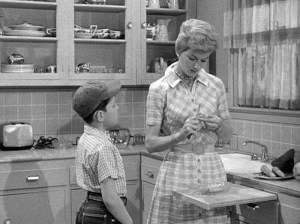
This wild week started with an alarm clock ringing at 4:45AM Monday morning and me schlepping myself to Sacramento Airport to fly down to my former hometown of La Jolla, CA to meet Guv Perry of Texas. The small group had a great talk.
I’m not naive enough to imagine us all singing Kumbaya together around a stem cell fire, agreeing about everything, but I’m hopeful that good things can come out of such a meeting. I believe scientists need to engage with politicians more often.
That meeting on Monday has led to quite a few reporters wanting to talk with me about it and about stem cells more generally. I always find it interesting even if a bit strange to talk with reporters, but most of my colleagues in science avoid the experience like the plague.
My experiences this week with Guv Perry and the reporters got me thinking….with my train of thought also influenced by the fact that I regularly talk with some of my new friends of the last few years who are patients and patient advocates.
No one teaches us scientists in grad school or as postdocs how to talk to reporters or politicians or patients or patient advocates. Some might even wonder if this is OK to do.
As a result, most scientists avoid talking with those folks and in turn a potentially synergistic community remains disconnected and insular. Biomedical science suffers.
One of my goals with this blog is to change that. I hope that I can encourage young scientists to realize that talking with people outside of academia is not only OK, but is beneficial on many levels.
Hello from a new reader – I’ve been enjoying your blog and am now officially delurking!
I agree that a lack of formal training in these areas is problematic. I’ve gone the self-directed learning route – for instance, I have a fantastic book called “A Scientist’s Guide to Talking with the Media”, published by the Union of Concerned Scientists (with whom I have no affiliation), that I would recommend to anyone (my husband is an interested non-scientist and found it fascinating), but especially to active researchers. I had a copy at my desk in my last job, where I wrote lay summaries of grants and papers and helped draft press releases, among many other tasks; I ended up having to write my name inside the front cover with a plaintive “please return to Cath” note, as it was constantly being “borrowed” by everyone from students up to professors! I think a couple of the PIs in the department ended up ordering their own copy.
I’ve also ordered, but not yet read, “The Geek Manifesto” after reading a review by my friend Stephen Curry. It focuses more on the relationship between science and politics. Apparently there’s a campaign by scientists to send a copy to every British MP (member of parliament); if I read it and find it applicable to Canada (where I live), I’ll be buying a copy for my MP and may even hand-deliver it to him!
Paul, good points all . Scientists and reporters have much in common. We both depend on public support to do our jobs properly, and need to guard against our own personal biases misleading ourselves and the public. By reaching out to politicians of other viewpoints, and to the media, you set a good example for your peers.
Thanks, Bradley. I always enjoy your articles!
Dr. Knoefpler: Well said.
The good will which you create by Your willingness to engage; inviting all to voice their opinions has the power to protect us all; to confer honor and to strengthen resolve to move stem cell research forward. And ultimately, it has the power to heal the sick and bring them to safety long after other methods are tried and failed.